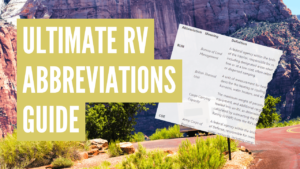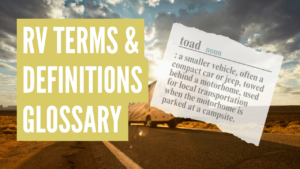The GCWR, or Gross Combination Weight Rating, represents the maximum allowable total weight of a towing vehicle and its attached trailer, including passengers, cargo, and all other items loaded in both the vehicle and the trailer. This value is essential for maintaining the safety and stability of a vehicle-trailer combination while towing.
How Is GCWR Calculated?
Unfortunately, GCWR is not calculated by a simple formula but is determined by the vehicle manufacturer through rigorous testing and engineering analysis.
Manufacturers consider various factors, such as the towing vehicle’s engine power, transmission, braking system, suspension, and frame strength, to establish a safe maximum weight limit for the combination of the vehicle and its attached trailer. This ensures that the vehicle can handle the additional load without causing damage to its components or compromising safety.
How Can I Find My Vehicle’s GCWR?
You can find your vehicle GCWR in the owner’s manual. Contact your local dealership or search for your manufacturer online if you’ve lost or misplaced your manual.
For example, here’s the GCWR information in the 2020 Ford F Series owner’s manual.

What Happens if I Exceed My GCWR?
Exceeding the GCWR can have serious consequences:
- Damage to your vehicle or trailer
- Increased strain on your vehicle’s engine, transmission, and brakes
- Difficulty controlling your vehicle, especially in wet or icy conditions
- Increased risk of accidents
- Manufacturers might not honor any warranties if an accident occurs due to exceeding the GCWR
To avoid exceeding your GCWR:
- Know your vehicle’s GCWR: Make sure you are familiar with the GCWR of your vehicle and the combined weight of your vehicle and trailer
- Do not overload your vehicle or trailer: Pay attention to the weight of the cargo and ensure it doesn’t exceed the maximum allowable weight.
- Check your vehicle’s weight: Have your vehicle and trailer weighed on a public scale, typically found at truck stops or waste disposal facilities.
GCWR vs GVWR: What’s the Difference?
GCWR and GVWR are two important terms related to vehicle weight ratings and are crucial for safe towing.
The main difference between GCWR and GVWR lies in their scope and application:
- GCWR refers to the combined maximum weight of a towing vehicle and its attached trailer, ensuring that the towing vehicle can safely handle the additional load while towing.
- GVWR refers to the maximum weight of an individual vehicle, taking into account its capacity to carry passengers and cargo safely without compromising performance and handling.
In other words, the GCWR encompasses everything your GVWR does, plus the trailer it’s towing.
Both GCWR and GVWR are essential safety metrics that drivers should be aware of and adhere to, whether they are towing a trailer or simply transporting passengers and cargo in their vehicle. Respecting these weight ratings helps minimize the risk of damage to the vehicle, accidents, and potential legal consequences related to overloading.
Other Important Towing Terms

- Gross Axle Weight Rating (GAWR) is the maximum allowable weight that can be placed on an axle of a vehicle when fully equipped with passengers, fluids, and payload. The front and rear axles can have a different GAWR.
- Gross Trailer Weight Rating (GTWR) is the maximum allowable weight of a fully loaded trailer, including its cargo.
- Gross Vehicle Weight Rating (GVWR) is the maximum weight an RV or tow vehicle can safely carry, including the vehicle itself, passengers, cargo, and fluids, as determined by the manufacturer.
- Pin Weight Meaning: King Pin Weight, also known as Pin Weight or Fifth Wheel Pin Weight, is the amount of a trailer’s weight that rests on the hitch of a towing vehicle when using a fifth-wheel or gooseneck hitch.
- Tongue Weight Meaning: Tongue Weight is the downward force exerted by the trailer’s coupler onto the hitch ball of the towing vehicle.
Check out our RV Terms and RV Abbreviations guides for more terms and their meanings.
Download Our RV Terms & Definitions Guide (With Abbreviations & Slang)

This comprehensive, 17-page printable guide contains the most common terms, abbreviations, and slang used in the RV community! Over 150 essential terms and their meanings, organized alphabetically, that you can access anywhere! Don’t travel without it!








Write a comment